Rob and Cronenberg talk about Cosmopolis
>> 2012/08/17
Most movie junket interviews do not have hordes of paparazzi and two burly security guards standing outside them. Then again, most junket interviews do not feature a subject who is currently in the midst of a tabloid scandal. Unfortunately, this is where Robert Pattinson finds himself right now, as he attempts to promote his new movie, "Cosmopolis."
Thankfully, if anyone can handle the pressure, Pattinson can. Case in point: when I sat down with him and "Cosmopolis" director David Cronenberg, the 26-year-old "Twilight" star was relaxed, as he discussed his new film and its decidedly more adult tone. The movie, based on the Don DeLillo book of the same name, follows Eric (Pattinson), a billionaire asset manager who takes a ride across town in a limousine to get a haircut. Along the way, he deals with financial loss, random sexual encounters and an angry anti-capitalist, Occupy-esque crowd.
Here, Pattinson and Cronenberg talk about the fandom surrounding "Cosmopolis," the movie's stance against one-percenters and what it's like filming an extended prostate exam in front of the camera.
Considering the anti-capitalist bent in this film, I thought it was ironic that you two were ringing the bell of the NYSE this morning.
David Cronenberg: It was a much more surreal experience than I thought it was going to be. I thought, Yeah, we’re visiting the scene of the crime now, and it’s going to be kind of cathartic to ring the alarm bell.
Robert Pattinson: I am curious to know if anyone had actually seen the movie or had any idea what it was about.
DC: Yeah! And [people there] seemed so excited about the movie and so excited about us and were very sweet and friendly. Yet it’s such a completely different world. It’s so familiar to them. I think they think everybody knows all about what they do. And I think the infamy and fame of stock traders and fraud only enhances the idea for them, that everybody knows what’s going on. But once you’re there you realize “Oh my god. I don’t understand anything at all.” But it was a very interesting, and I would say ironic [opportunity]. To use that moment, ringing the bell to open the Stock Exchange, for “Cosmopolis,” it was very strange. Were we selling out? I don’t know [laughs]. They gave us little medals!
Rob, you mentioned on "The Daily Show" about how “Cosmopolis” is almost physically impossible to explain to people. So how do you explain it to yourself? Can you even explain it?
RP: The last interview [I did], I just started projecting things. I literally just used that as therapy sessions [laughs]. I didn’t really know what I was talking about.
DC: I was in shock! I never heard him say those things.
RP: [Laughs] I just [realized] that the movie was about things that I’ve said it’s not about. So I have no idea what I am talking about. It’s funny, my initial thought about [the film] was that the script was funny. It’s kind of a sad comedy. The first time I watched the movie, I was shocked by how sad it was. And then you start promoting [the film], and everyone else is saying it’s about capitalism [and] has all these deeper meanings, so then you start following that road. Then I [say to myself] “Interesting, that’s interesting. I should talk about it in an interesting way.” I mean, I always knew it was interesting but you kind of...It’s like looking at a rock. It can be anything.
It is a bit of a sad comedy. There’s a lot of a dark humor in this. For instance, let’s talk about that prostate scene. Obviously you didn’t actually get one, but...
RP: [They used] Three fingers!
DC: [laughs]
[Laughs] I respect your method acting approach.
RP: See, for this film I didn’t learn anything about [stock] traders. I didn’t have a single thought about it the entire time. I didn’t even really know anything about Occupy Wall St. When we were doing the riot scene [where protesters crowd the car and start shaking it] I wasn’t thinking it had anything to do with capitalism.
DC: Well really, in a way, Rob is approaching the character the way the character thinks of himself. The character thinks, rather than the actors think. That is, he’s just living his life, doing the thing that he does. It’s like the way most people live their live: they don’t think of themselves as a character who has meaning in a plot.
Yeah, so Eric would be completely oblivious of the Occupy movement going on outside.
DC: Yes, he is. As he says, “Two hours ago, an international movement. Now, what? Forgotten.”
RP: That was one of the scariest things as well, when we were shooting that scene. It was kind of frightening on the first take. There were like two hundred actors really pushing the car around. But [inside the car] you realize how easy it is for Eric to ignore it. We were literally playing a scene inside [the car during a riot]. If you’re in an armoured car, you could just totally ignore the madness and mayhem outside. It doesn’t make any difference to you. It was kind of frightening to think about afterwards … how [the protesters] think they’re doing something impactful and significant, but they’re really not.
DC: Well, you know, you go to the New York Stock Exchange, and there are checkpoints. You can’t just drive your car there anymore. They said before 9/11, there were tours. Anybody could go into the Stock Exchange and see every part of it, but not anymore. But there they are, trading away, happy and smiling nonetheless. It’s very similar to Eric and his limo.
Other than the anti-capitalist bent, one of the other things I took away from this film is Paul Giamatti is still unbelievably talented.
RP: I was kind of terrified about every single [scene], because I would shoot with everyone for about three days, and me and Paul’s stuff was the last bit. But having these independent chunks, you kind of stay in a state of perpetual nervousness right up until the end, when I had this huge scene with [him]. Paul was luckily just as terrified as I was. Basically, I had no idea what was going to happen. But it’s really funny, that scene, we were playing it for laughs. It’s weird. The bit, where [Paul] is doing the thing about the women’s shoes and stuff, I’ve never really been in a scene where I literally started watching it, like I was watching a movie. It was so great. I didn’t even see the camera. I was literally just watching him, completely out of the scene. I kept forgetting to say my line. I mean, I think it’s one of the best things he’s ever done. I couldn’t even talk to him about it when we were doing it, because I knew if I started kissing his ass about doing it, I wouldn’t be able to come to work the next day. I thought he was amazing.
Let’s talk about that scene where you’re getting your hair cut and you leave halfway through. For the rest of the film, you have sort of a sawed-off look on your head. How long did you have that for outside the movie?
RP: I had it for ages! I liked it. The scary thing was, to get it shown on film, you needed to show scalp, and so [the actor] was cutting so close.
DC: And he is an actor, not a barber. And he was cutting the hair.
Rob, now that you have been in a David Cronenberg movie, do you have a better understanding of his films? Like, could you now fully explain to me what “Videodrome” is about?
RP: It’s funny that you say “Videodrome.” Because I’ve read a lot of ["Cosmopolis"] reviews, and they’re like “It’s a return to form, [like] “eXistenZ.” And I am like, “No, it isn’t.” Obviously it’s much closer to “Videodrome.” This is going to sound ridiculous now, but I found “Videodrome” to be more a sort of mystical understanding. “eXistenZ” had a much more basis in reality, and “Videodrome” is kind of like Describe a dream,. Most people don’t find other people’s dreams interesting. But sometimes, if you know the person, it’s kind of interesting. I find listening to people’s [dreams] interesting, even if I don’t know them. I also like reading their diaries [laughs].
But yeah, in terms of understanding it, I don’t know. I mean, I get weird things. I am an expert at reading things wrong. I will take the opposite interpretation, even when something is blatantly obvious, especially with scripts. The amount of times I’ve gone into an audition for something, I will be like, “The guy’s the bad guy, right?” And they’re like, no, it’s “The Notebook” [laughs].
Was Rob wrong about “Videodrome” or did he get it right?
DC: I have no idea what he was saying [laughs].
RP: [Laughs]
DC: So I guess that’s pretty accurate.
I can sort of see the comparison between those movies, although “Cosmopolis” doesn’t necessarily have that TV-is-taking-over-real-life feel.
DC: Well there are screens in the limo -- more sophisticated screens. But also, in the limo, the City becomes a screen. Through the windows of the limo, the city is a virtual city. It might as well be a CG -- in fact, as it turns out, it was -- generated city. And for Eric, he creates that, and “Videodrome” is touching on that stuff.
Is it a bit odd having all the fanfare surrounding this movie? Have you ever had that with past films?
DC: Well, I have had it [in the past]. I had Jude Law, and he was pretty hot at the time; he was up and coming. He hadn’t had sort of a “Twilight”-type success, but he had a lot of fans. So I’ve worked with some pretty high profiles. Viggo after “Lord of the Rings,” he had a pretty big fanbase. All it has to do with is getting your movie financed, so it’s very pragmatic to me. You need an actor who has enough star power to get your movie financed. And the more expensive the movie, the more the star power is required. But after that, it’s irrelevant. Do I know if Aragorn fans will want to see “A History of Violence”? Aragorn is not in it. Viggo’s in it, and if you’re a Viggo fan, you will want to see it. It’s the same with this. It’s not Edward Cullen, so if that’s who you are a fan of, then this is not your movie. But if you’re interested in Rob, then this is a must-see. And to me, that’s all it is. Because once we’re on a set making a movie, we’re in our own bubble, we’re in our own limo, and we love it. Nobody us around, just the crew, the actors. We’re making a movie, and it’s a wonderful moment.
source
Eric Packer, the icily charismatic asset manager played by Robert Pattinson in Cosmopolis, does a great many interesting things in a single, fateful day. In his white stretch limousine, he attempts to traverse Manhattan in gridlock traffic amid violent Occupy-like protests, and all in search of a haircut. He forfeits hundreds of millions of dollars in a suicidal currency-speculation bid. He enjoys afternoon sex with a comely security specialist wearing a body-armor vest with a stun gun on hand. He also has sex with Juliette Binoche. He also endures a weirdly erotic prostate exam while staring into the eyes of a sweaty associate. He gets a pie in the face from a “pastry assassin” who travels with a crew of paparazzi. He is stalked by an actual would-be assassin as well.
So much to talk about! But overshadowing Pattinson’s press tour for Cosmopolis—directed by the great David Cronenberg and adapted from Don DeLillo’s 2003 novel—is the recent tabloid frenzy surrounding his breakup with Twilight costar Kristen Stewart. (The final film in the Twilight franchise is out in November.) TIME sat down with Cronenberg and Pattinson—fresh-faced, sweet, totally affable, smoking an electronic cigarette— in Manhattan’s Soho neighborhood the day after the New York City premiere of Cosmopolis. We mostly stayed on topic, if occasionally tiptoeing awkwardly around the heartbroken vampire-elephant in the room.
TIME: Cosmopolis was published in the first year of the war in Iraq, and in a wave of novels that were all described as being “post–Sept. 11” in one way or other, but now the story maps on remarkably well to Occupy Wall Street and other protest movements around the world in 2011. David, at what point did you encounter the book, and when did you know it was a movie?
David Cronenberg: It was about three years ago, and the attraction wasn’t that the novel was prescient or because of its historical place. It was the characters, the dialogue, the intensity, the humor—it’s constantly funny. I wasn’t looking to make any kind of statement. Inevitably, though, if you’re making something with integrity, it will say something about the time it’s being made in. When the novel came out, people were saying, “All this demonstrating-on-Wall-Street stuff isn’t very convincing.” Now it’s obvious.
Robert, DeLillo’s dialogue is hyper-stylized, very formal, and often steeped in theory. How did you approach it?
Robert Pattinson: The first thing I connected to was the humor. Everything else seemed kind of arbitrary. I liked that it was absurd and unrelatable in a lot of ways. I thought that Eric doesn’t understand himself, so that was my angle—play the part as if you don’t understand the part. [Cronenberg laughs merrily] Try to remain lost. I noticed that every single time I came into a scene with an idea or an angle about how to do it, it would feel wrong, and David would know it was wrong. When I was kind of somewhere else, not thinking at all—that was when it felt right.
What’s relatable about Eric might be that his world is so mediated by technology—he experiences the world at a remove, through screens, and so he’s struggling to feel something, whether it’s through sex or shooting a gun or gambling away his fortune. Do you think people can relate to that kind of alienation and wanting something real?
DC: One of the investors in the movie is a genuine French billionaire named Edouard Carmignac. He’s known as the French Warren Buffett. He wanted to be involved with this movie because he said it was absolutely accurate. He knows many people who are like this character, who have created this strange bubble that they live in. Within that bubble, they’re very alive and in control, and yet they’re completely disconnected from normal humanity, normal relationships. So Eric Packer says things to his wife like, “This is how people talk, right?” He’s trying it out, because he really doesn’t know. He’s dealing with billions of dollars, but he’s never actually touching real money and he doesn’t know how to actually pay for things. Of course, Carmignac doesn’t think of himself as that person, but he recognizes it completely. So I take him at his word that it’s not such a stretch. People create a limo for themselves, a little spaceship, a little bell jar in which they insulate themselves from things that hurt.
RP: I think Eric is confused between genuine power and ego. He’s mixing the two up. I think a lot of people in that job find that empathy is a weakness, so he realizes that it’s a strength. I’ve read things that describe Eric as a monster, but I always thought the story was a hopeful progression. His biggest problem is that he’s totally self-obsessed. But he’s taking baby steps toward coming to terms with it. He’s had an extended adolescence in a lot of ways, and he’s really smart—he’s a savant. Some people are so entrenched in what they think they are, and he realizes that the only shock that can snap him out of himself is that someone is going to kill him.
Do you also see Cosmopolis as a story about fame? Eric is in a bubble, people he doesn’t know know him, they spin narratives in their head about him, and—
DC: No, I don’t think so. It’s like the London whale—nobody knows what that guy looks like, nobody knows where he lives. That’s his strength as a trader: nobody can predict him, nobody understands him. I think Eric is like that. On the outside, his limo looks like everyone else’s. He just got this one guy who wants to “pie” him, who’s got the paparazzi with him. But Eric can have dinner and no one’s around, he can go to the diner with his wife and nobody bothers him. He’s got the one security guy but that’s it. He doesn’t have fans.
RP: The world would be a much better place, I think, if all these bankers and billionaires were followed by paparazzi and studied as carefully. As soon as people look at something very closely, the whole thing just crumbles.
I might be thinking about Cosmopolis as a parable of fame in part because Robert is cast in the role, and Robert has a very intense and specific kind of global celebrity.
DC: The element of that that’s important is: you want to finance the movie. To attract investors, you can’t do that without an actor who is known. Beyond that, we want to disconnect. When we are making the movie, we are in our limo, our little bubble. There’s nobody else around. It’s just us. At that point, Rob’s other movies are nonexistent and my movies are nonexistent. I’m not thinking about the connections between them.
Speaking of your other movies—Cosmopolis has some affinities with David’s film Crash, in that it takes place inside a car, and the car is a very eroticized space. There’s an amazing sex scene with Eric and the security specialist, Kendra. Is a scene like that highly choreographed down to every movement, or is there room for improvisation?
RP: That was probably one of the most difficult scenes in the movie. It wasn’t a sex scene in the script. In the script, we’d finished having sex, and we were getting dressed. [To Cronenberg] I think you only told me like the day before or something. [laughter]
DC: Well, I don’t think it pays to panic my actors. There’s nothing you can do to prepare anyway. It’s not like if I’d told you the week before—
RP: I’d have done some sit-ups.
DC: Yeah, well, that wouldn’t have helped. I said that the scene becomes more interesting and trickier and better if you’re actually having sex. When Kendra says that it’s erotic to be so close to a man somebody wants to kill, it’s obviously better than if they’re on opposite sides of a room getting dressed.
RP: I like the moment of climax—it seems so obvious to have the peak and then his line is, “Do you find this interesting?” I kept laughing.
Tell me about the limo. It’s amazing—like J.G. Ballard designed the Death Star. Robert, was it claustrophobic to spend so much time acting in that space?
RP: The seat was kind of tilted back, so you could never look entirely comfortable and powerful, so from any angle, you were kind of like [he slumps and leans back slightly, looking befuddled]. I was constantly trying to present power, but I was always sort of halfway in between positions. I liked that after awhile, but I remember the first time I sat down, I thought, [whispering] “Shit, I can’t sit in this, it’s like a throne, it doesn’t work.”
DC: It was designed like a throne. I wanted there to be a visual equivalent to his sense of power and the idea that he’s created a bubble in which he is the absolute master and he forces people to come into that space for sex, for conversation, for business. The car was a set, and it all came apart into about 25 pieces, so you could get angles and lights in there and take it apart. I was shooting with very wide-angle lenses.
RP: Most of the time the camera is on a crane, so it’s remote-controlled. Normally, if there’s a camera there, you’re trying to connect with the eye looking through the lens. But to have that removed, it becomes a strange thing where you have a relationship with a machine, and there’s a dehumanizing—even the sound inside the limbo was so dead, it was like being in a recording studio. Everything was like, “I’m numb.” The sound guy was always crawling on the floor and squished into a corner, and that was the only person who was there most of the time. I’m just looking at this little French guy squirming away from me, and that’s my only other major relationship on the set.
DC: I was helping him with the disconnect thing. I like to help my actors.
How did you help Robert with the prostate-exam scene? There doesn’t seem to be as much choreography involved with that one.
DC: There was! It was kind of complex. Finding the right angle wasn’t easy.
Robert, do you have any tips for actors who have to play a prostate-exam scene?
RP: I was about three inches from Emily [Hampshire]’s face, which made it easier because if there was any distance she could have judged what I was doing, but the fact that it was so close meant that I had the upper hand—
DC: As it were!
RP: —In a very humiliating situation. That was probably the most powerful I felt during the making of the whole movie. I only found out later that a prostate exam only takes, like, a few seconds.
DC: They literally take twelve seconds. If it goes on longer, then your doctor is trying to seduce you.
What are the next movies you have going into production?
DC: I’d love to work with Rob again, and particularly I think Rob and Viggo Mortensen [star of Cronenberg’s A History of Violence, Eastern Promises and A Dangerous Method] would be fantastic together. But I’d have to sit down and write my Rob and Viggo movie. I don’t have my next movie. At one point Eastern Promises 2 was possible but that’s fallen apart for various reasons. Bruce Wagner wrote a script called Maps to the Stars; there’s a role for Rob in it, and Viggo, too. We’ll see if we can get it financed. It makes Cosmopolis look easy to finance, and it wasn’t.
RP: I’m going to make this movie [Mission: Blacklist] about Eric Maddox, an Army interrogator who was one of the major people responsible for finding Saddam Hussein. He was working with JSOC [Joint Special Operations Command], which isn’t supposed to exist, and they found Saddam Hussein by themselves but they couldn’t say it was them. The story is crazy, absolutely bizarre. It’s a really cool director called Jean-Stéphane Sauvaire. We’re going to shoot in Iraq next summer. In January I’m doing this other movie [The Rover] with David Micôd, who did the Australian movie Animal Kingdom—a futuristic western with Guy Pearce.
Before we wrap up—forgive me for this, Robert, but I have to ask: What is it like to have millions of people worrying about you and hoping you’re OK?
RP: I guess if people think they’re worried about you, it’s sweet. It’s kind of odd.
DC: They’re reacting to what they think they know, but they don’t know. And they have a huge investment in so many lives that they aren’t connected with at all. Talk about a disconnect.
RP: But at the same time, the world is a pretty cruel place, so whatever inspires people to suddenly feel this kindness, hopefully they’ll look at themselves and they’ll look at their own lives and realize, [awestruck, Eureka-moment voice] “I have the ability to—to empathize with people!”
“My ability to empathize with a total stranger has helped me empathize with people I actually know!”
RP: “Hey, I’ve learned something!”
Time






























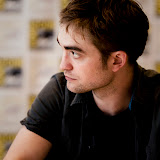













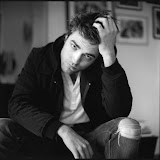
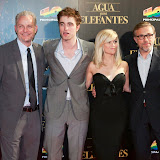


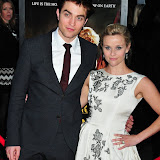




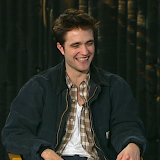
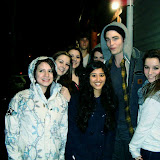





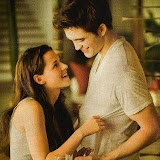

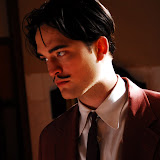
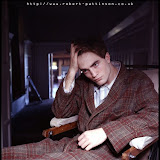





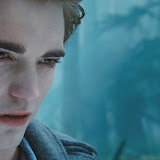

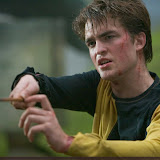






0 comments:
Post a Comment